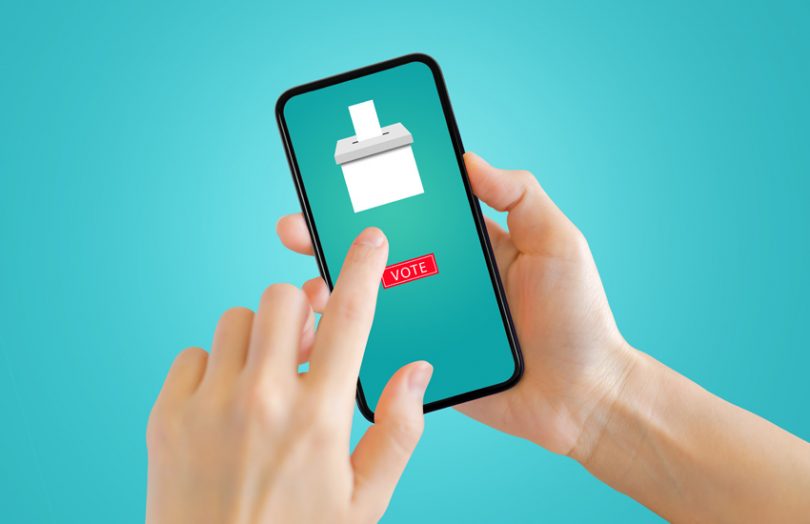.On 2 September 2020, election voting app Voatz announced that it successfully completed a virtual convention with the Michigan Democratic Party. This was the first time participants selected Supreme Court nominees virtually. Candidates for Michigan’s Board of Education and boards of multiple universities were also nominated during the convention.
Almost 2,000 delegates used Voatz’s app to submit signature nominations and cast their votes. This is the fourth time the Michigan Democratic Party has collaborated with Voatz. Previously Voatz’s tablet voting system was used at on-site Michigan conventions.
Executive Director of the Michigan Democratic Party, Chrisy Jensen, praised Voatz in enabling their delegates ‘to be verified remotely,’ calling it an ‘eye-opening’ experience. Notably, Voatz collaborated with disability rights advocates accommodat the visually impaired. And those who were not able to use the app were able to vote through a help desk.
While electronic voting has multiple benefits especially during the pandemic, it is still possible for voting apps to be exposed to vulnerabilities, jeopardizing user data privacy, and voting security. Blockchain voting is quite a divisive subject and some academics are concerned. Voatz was the subject of scrutiny from MIT researchers who identified vulnerabilities, although the company said the academics had targeted an old version of the app. Since then, Voatz has been used at several events, including voting at state Republican conventions in Utah and Arizona.
This July, Russian citizens were able to vote electronically on a constitutional change, but the web portal used for the remote voting crashed, with the Russian press reporting voter details had been jeopardized.
With COVID-19 still in full swing, the U.S. postal service struggling and the U.S. Presidential elections coming up, this convention shows it may still be possible to use blockchain technology for virtual elections in a secure and reliable manner.






